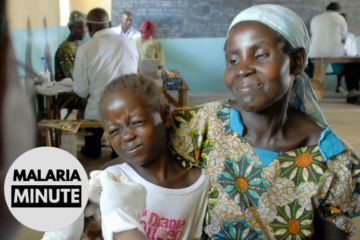The Latest Malaria News, in 60 Seconds.
CDK5 regulates atypical cell division in gametogony and is essential for DNA replication, and researchers assess whether two experimental vaccines can be combined to create a multistage vaccine against malaria.
Malaria Minute on iTunes and Spotify
Transcript:
The transition between stages of Plasmodium infection is triggered by variation in activity of cyclin-dependent kinases, CDKs. In Plasmodium berghei, mouse malaria, a specific kinase called CDK-related kinase 5 is a critical regulator of atypical cell division in gametogony; the process by which gametes are formed. The kinase was also shown to be essential for DNA replication, interacting with a cyclin called SOC to form a complex called CSC.
And researchers have assessed whether two experimental vaccines can be combined to create a multistage vaccine against Plasmodium vivax. One vaccine uses the PvCSP protein and the other the PvAMA-1 protein. Both vaccines were immunogenic when given alone, but when mixed together had minimal effect on the immune responses. Importantly, the combination vaccine provided partial protection against Plasmodium berghei sporozoites expressing the PvCSP protein.
Sources:
Image Credits: Paul Christian Burda [Wikimedia Commons]
Scientific Advisor: Katharine Collins, Radboud University Medical Centre


